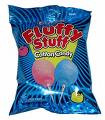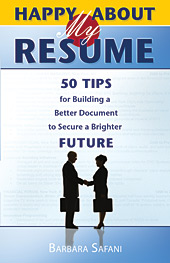Enough With the Resume Fluff!
 Nine out of every ten resumes I receive lead with a profile statement that is full of what I call resume fluff...statements of personal attributes that are boring, do nothing to differentiate the candidate, and are frankly, just a waste of space. Here are some typical profile statements I see on resumes.
Nine out of every ten resumes I receive lead with a profile statement that is full of what I call resume fluff...statements of personal attributes that are boring, do nothing to differentiate the candidate, and are frankly, just a waste of space. Here are some typical profile statements I see on resumes.
“Results-oriented professional with diversified experience and demonstrated strengths in project/team management and operations. Meticulous, methodical, and focused on managing initiatives, staff, setting and exceeding metrics. Excellent communication and presentation skills.”
“Highly motivated, creative and orderly individual with widespread experience. Excellent communication, time management and multi-tasking skills.”
“An MBA graduate with a successful record of achievement within the publishing industry. A creative problem solver used to working with a customer focused environment and experienced in building positive client relationships. Proven leadership communication and interpersonal skills, able to manage and motivate a team. Highly proactive and results driven.”
Do these profiles “wow” you or are you left saying duh! Probably the later. Employers expect you to be a creative problem solver…they assume you are customer focused and you have excellent communication skills. What employers want is proof of these attributes…statements that brand you professionally, explain your business environments and expertise, and validate your ability to impact the organization. For example:
SENIOR BUSINESS DEVELOPMENT EXECUTIVE
Insurance – Reinsurance – Alternative Investments – Financial and Insurance Technology Products
- 15+ year career building business development relationships with C-suite executives at insurance and technology companies, hedge funds, and broker-dealer firms.
- Over a decade of experience underwriting and brokering sophisticated insurance and reinsurance programs and products for nationally recognized, multimillion-dollar accounts.
- Expertise sourcing, pitching, and closing deals that leverage leading-edge technologies to increase revenues for insurance companies by millions of dollars annually.
RETAIL SENIOR EXECUTIVE
Turnaround Expert – Brand Vision and Transformation – Global Retailers
EXECUTIVE PROFILE
- General Manager/Division Head with experience managing all facets of the retail and wholesale environment.
- Adept at returning struggling retailers to profitability by streamlining processes, meticulously monitoring customer pulse, and building pay-for-performance sales teams.
- Success reinventing product lines, expanding brand reach, and tapping into new lucrative revenue streams.
- Collaborative business partner with track record for fostering relationships with third party retailers, corporations, vendors, and employees to deliver sustainable ROI and gain new market share.
Get rid of the resume fluff and get to the meat. Remember that hiring managers are reviewing hundreds of resumes for their open positions. Do you really want to look like everyone else?

